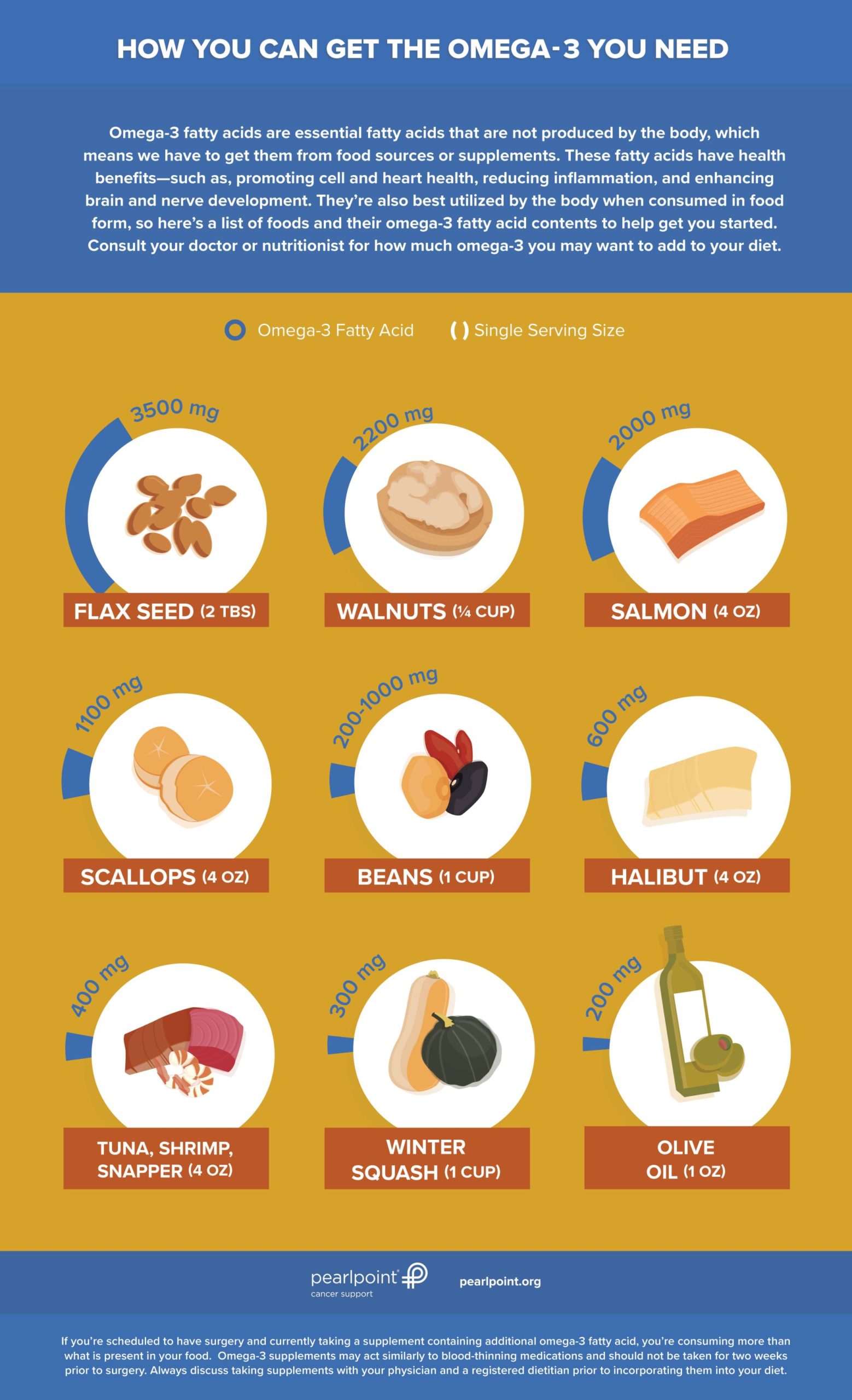* Whole flaxseeds and flaxsee oil are high in calories and excessive amounts may cause digestive issues. Include these omega 3 sources in smalls servings in a balanced meal plan.
Source: WHFoods.com
The foods listed above are fairly easy to incorporate into your diet. Here are some tips to incorporate these foods into your eating plan:
- Use flaxseed and walnuts as additional toppings for oatmeal, cereal, yogurt or a salad. Flaxseed and walnuts can also be used in baked goods and casseroles for an added crunch. Flaxseeds need to be grounded first to release the omega 3 oils.
- Incorporate beans by choosing a meatless meal at least one day per week. Beans are an excellent source of protein. Use them in a vegetarian chili, soup, or pair with rice.
- Have a 4 ounce serving of a fatty fish at least 2 times per week. Grill, bake, or broil the fish for healthy preparation. Use canned fish in recipes for patties or to make a salad.
- Use olive oil or canola oil in all recipes that suggest other vegetable oils.
If you have a difficult time consuming omega-3 fatty acids from food sources, you may consider a supplement in the form of fish oil or flaxseed oil. Always discuss supplements prior to taking them with your physician and a registered dietitian.
If you are scheduled to have surgery and you are taking a supplement containing additional omega-3 fatty acid, you are consuming more than what is present in your food. Omega-3 supplements act similarly to blood thinning medications and should not be taken for 2 weeks prior to surgery.
Dietary supplements that should be stopped for at least 2 weeks prior to surgery include but are not limited to are: Vitamin E, Fish Oil/Omega-3, Garlic, American Ginseng, Gingko, Evening Primrose Oil, Ginger, Feverfew, Licorice, Valerian Root, Echinacea, and Goldenseal.

